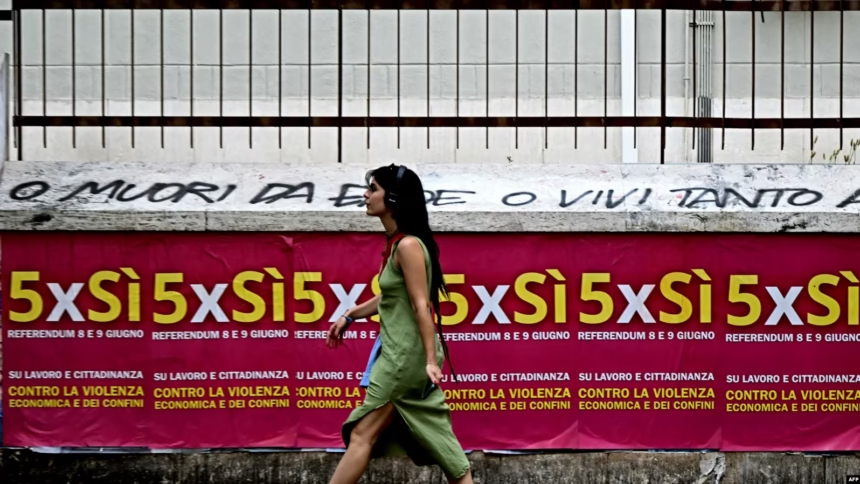Italians are heading to the polls for two days, starting Sunday, to vote on referendums that would ease the acquisition of citizenship for children born in Italy to foreign parents and offer greater protection in workplaces. However, a perceived lack of public awareness risks the failure of this process if voter turnout is insufficient.
Advocates for changes to the citizenship law believe they would help second-generation Italians—whose parents do not hold European Union passports—to better integrate into a culture they consider their own.
Italian singer Ghali, born in Milan to Tunisian parents, has urged people to vote, emphasizing that the referendum risks failing if at least 50 percent plus one eligible voter do not participate. “I was born here, I have always lived here, but I only got citizenship when I turned 18,” Ghali said, calling for a vote to reduce the legal application period for citizenship from 10 years to five.
The proposed rules, if approved, would affect the status of 2.5 million foreigners who are not yet recognized as citizens. These proposals have been put forth by Italy’s main trade union and left-wing opposition parties.
Italian Prime Minister Giorgia Meloni has stated she will appear at polling stations but will not cast a vote—an action described by the left as undemocratic, as it will not help reach the necessary turnout percentage for the referendum to be considered valid.
Supporters believe this reform would align Italian citizenship law with the majority of EU countries’ laws, promoting greater integration for residents with permanent residency permits. This would offer these individuals easier access to civil and political rights, such as the right to vote, the right to employment in public institutions, and freedom of movement within the EU.







